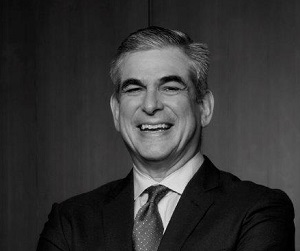
- Ayala Corporation (Real Estate, Infrastructure, Insurance, Banking)
“We wanted to be part and parcel of the development cycle of the country… and to be relevant as an institution in a country which needed a lot of growth, a lot of development, and a lot of institutional support. [We wanted] to have an Ayala that was relevant to the national development agenda, but at the same time put capital to work and gave good return on investment.”
Summary
Jaime Augusto Zobel de Ayala, Chairman and CEO of Ayala Corporation, discusses his mission, strategies and long-term vision when he assumed leadership of his family’s business in 1994. He also traces the history of Ayala Corporation’s development from its founding in the 1830s as a trading house specializing in agricultural products, to the present. Today, Ayala Corporation is a publically listed trading company for the highly-diversified Ayala Group, with interests in real estate, public infrastructure, insurance, and banking.
In the interview, Mr. Ayala describes how, when he became chairman in 1994, he entered at a moment of change both within Ayala Corporation and in the Philippines more broadly. The company had recently undergone major restructuring—Ayala Corporation, previously a real estate company with other scattered investments, became a holding company. Mr. Ayala thus began his tenure as chairman tasked with “formulating a whole new sense of being” for his company. “It was an exciting time,” he recalls, “to be at the helm of the institution.”
Mr. Ayala was building his new vision for the company just as the Philippines were undergoing a period of political and economic change. President Fidel Ramos (in office 1992-8) had initiated wide-spread privatization efforts, and Mr. Ayala explains how this new climate of economic optimism and governmental openness contributed to his desire “to have an Ayala that was relevant to the national development agenda… [and that would] at the same time put capital to work and [give] good return on investment.” As a result, Ayala Corporation became involved with the privatization of water and the development of the telecommunications industry. In the interview, Mr. Ayala describes some of the major challenges the company faced in both endeavors, including the harnessing of local knowledge and networks, building investment frameworks, finding base-of-the-pyramid marketing strategies.
In the interview, Mr. Ayala reflects on his country’s turbulent political history and how his family business navigated both political uncertainty and periods of unrest in the 1970s and ‘80s. Under his own leadership, Ayala Corporation has also survived two more recent periods of economic crisis. Mr. Ayala describes some of the strategies he used to navigate the 1997 Asian Financial Crisis, and explains how the lessons learned in 1997 helped Ayala Corporation “ride out the 2008 crisis relatively well.”
Mr. Ayala concludes the interview by discussing his views on family and professional management and describes some of the structural changes he has made to the company towards greater de-centralization. He also discusses Ayala Corporation’s past and future strategy for regional expansion in Southeast Asia.
Video Clips by Topic
Diversifcation
Government and Business
Additional Resources
- Ayala Chairman & CEO Jaime Augusto Zobel de Ayala on CNBC’s Managing Asia
- HBS Case: The Ayala Corporation
- HBS Case: Phillipines: From Sick Man to Strong Man
- HBS Case: Ayala Corporation & The Phillipines: Asset Allocation in a Growing Economy (A)
- HBS Case: Ayala Corporation & The Phillipines: Asset Allocation in a Growing Economy (B)
- “Addressing Society’s Pain Points: An Interview with the CEO of Ayala Corporation,” McKinsey Quarterly, 1 (2021), 89-97.
Interview Citation Format
"Interview with Jaime Augusto Zobel de Ayala, interviewed by Meg Rithmire, Manila, Philippines, November 8, 2016, Creating Emerging Markets Oral History Collection, Baker Library Special Collections, Harvard Business School."
